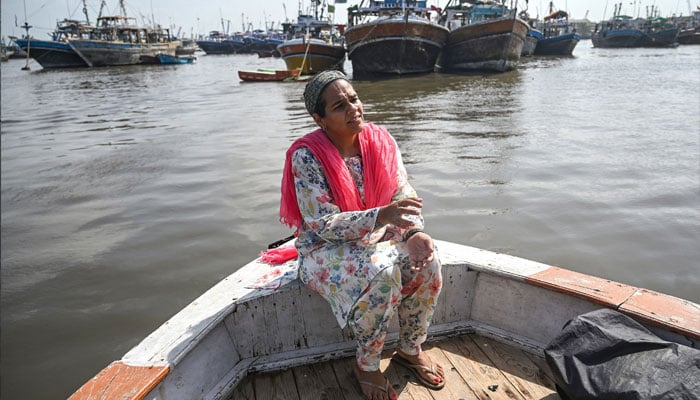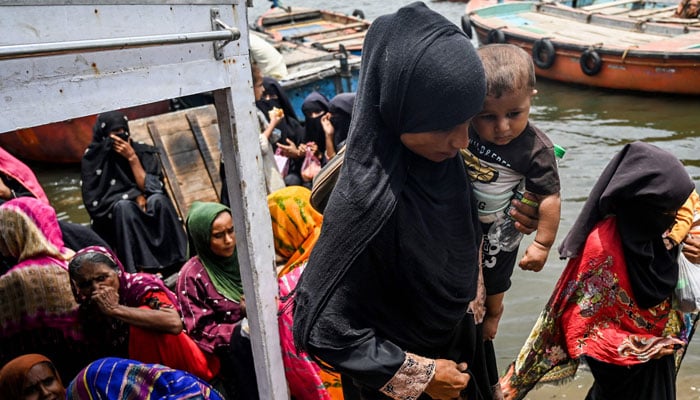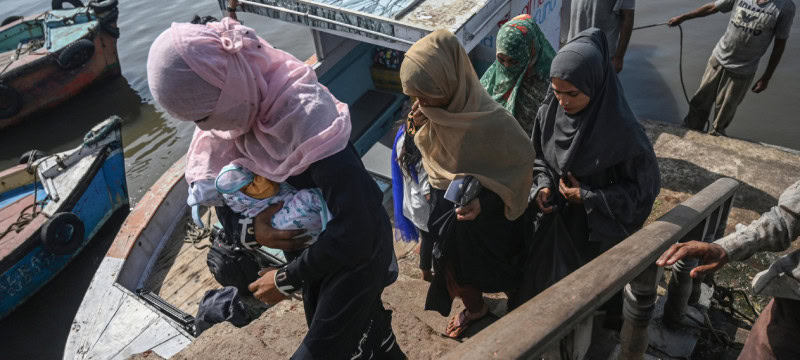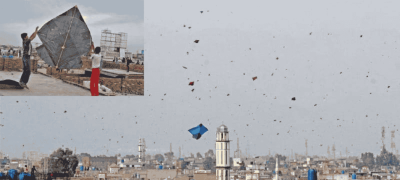On a densely populated island near Karachi, pregnant women endure a severe heatwave as they await the arrival of the lone midwife from the mainland.
Every week, Neha Mankani travels by boat ambulance to Baba, an overcrowded fishing village considered one of the world’s most densely populated islands, housing about 6,500 people in just 0.15 square kilometers.
Climate change is exacerbating sea levels and increasing temperatures, leaving expectant mothers vulnerable until Mankani’s ambulance service began last year.
Outside her island clinic, 26-year-old Zainab Bibi waits anxiously. She suffered a miscarriage last summer and is now pregnant again.
“On a very hot day, feeling unwell, I struggled as my husband negotiated for hours with boat owners to get us to the mainland,” she recounted. Unfortunately, they were too late.
“By the time I reached the hospital, my baby had already passed away,” she lamented.
Summer heat impacts pregnancies
Heatwaves in Pakistan, increasingly intense and prolonged, underscore the country’s vulnerability to climate change. High temperatures exceeding 52°C (126°F) for extended periods have been observed in May and June.
“Climate change impacts are uneven,” remarked Mankani, 38, during her boat journey, emphasizing its varied effects on communities.

“Pregnant women, newborns, and postpartum women are significantly more vulnerable,” she explained.
“During the summer months, we observe a notable increase in cases of low birth weight, preterm births, and pregnancy losses.”
Experts cited in the British Journal of Obstetrics and Gynaecology last year noted that women face a higher risk of stillbirth when exposed to temperatures above 90% of the normal range for their location.
“Previously, evidence was lacking, and much of our knowledge was based on anecdotal reports,” Mankani noted. “But we’ve been witnessing the impacts of climate change firsthand.”
In Pakistan, maternal mortality rates remain high at 154 deaths per 100,000 live births, influenced by socioeconomic factors, limited healthcare access, and disparities in decision-making, particularly among young women, according to the United Nations.
Mankani started her midwifery career 16 years ago at a Karachi hospital, specializing in high-risk cases that often involved women from the five islands off the coast.
In 2015, she established the Mama Baby Fund and launched the first clinics on the islands to support expectant and new mothers. “The community welcomed us with open arms,” she recalled.
Last year, the introduction of a free 24/7 boat ambulance became crucial for navigating rough seas in a region increasingly susceptible to flooding.
Sabira Rashid, 26, welcomed her daughter Eesha two months ago after experiencing a stillbirth and a miscarriage at seven months, losses she attributes to delays in reaching the hospital.
“At the dock, they keep us waiting, insisting on more passengers, regardless of the emergency,” she lamented.
Rising, dirty waters
Young girls on the impoverished islands frequently marry as young as 16, viewing marriage as a form of security in an environment where polluted water has devastated the fishing industry.
“Many of these girls lack self-care knowledge and suffer severe infections from constant exposure to dirty water,” stated Shahida Sumaar, a clinic assistant, wiping sweat from her face.
She, at 45, provides basic guidance to young mothers during heatwaves, advising the use of dry, clean towels for wrapping newborns, washing breasts before feeding, and staying hydrated.

However, without access to running water and limited electricity, combating heat stress poses a significant challenge for all islanders.
Women face heightened risks, often cooking indoors over open flames in poorly ventilated rooms without fans. Ayesha Mansoor, 30, resides on the outskirts of Baba with her four children, enduring only a few hours of electricity daily.
The path to her home is strewn with discarded plastic bags that disappear underwater during high tides.
“Those with solar power manage the heat better. We can’t afford it,” she lamented, swatting away flies hovering near her baby.
Eighteen-year-old Mariam Abubakr, an assistant at the clinic who grew up on the island, aspires to become its first full-time midwife.
“I used to wonder why we women lacked facilities here, like a clinic dedicated to us,” she reflected.
“When Neha opened her clinic, I saw an opportunity to assist the women in my community.”









